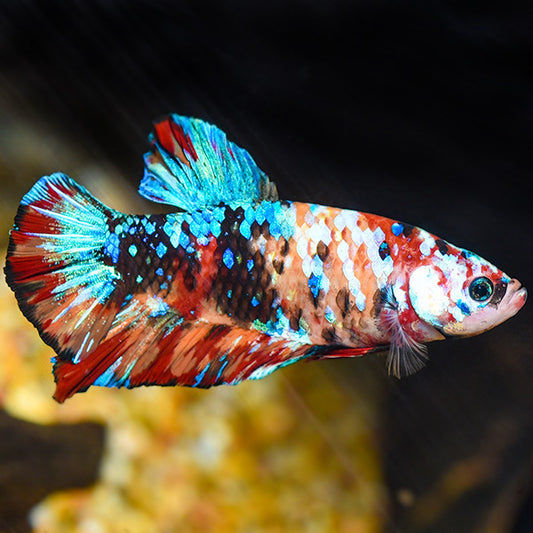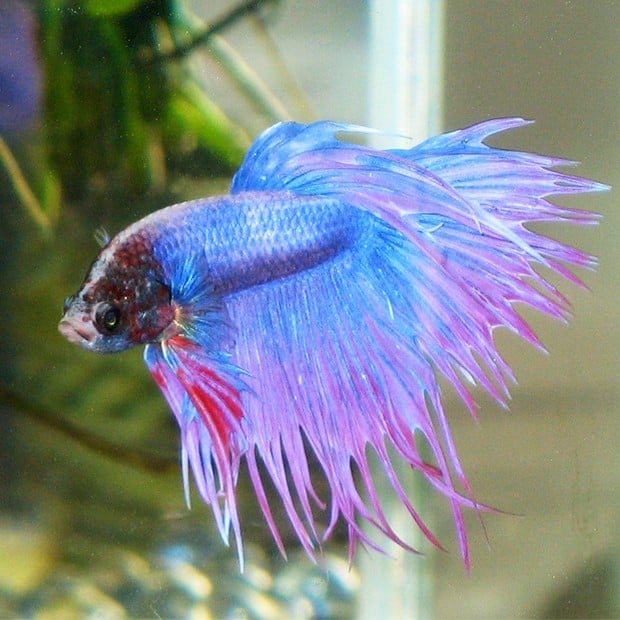The Ultimate Betta Fish Care Overview for New Pet Owners
The Ultimate Betta Fish Care Overview for New Pet Owners
Blog Article
All About Betta Fish: Comprehending Their Special Needs, Behavior, and the Finest Practices for Optimal Treatment
Understanding the one-of-a-kind demands and habits of Betta fish is important for any aquarist wanting to supply optimal treatment. These captivating animals, indigenous to the warm waters of Southeast Asia, display distinctive territorial tendencies and require details ecological problems to prosper. From choosing the right tank size to identifying potential wellness concerns, various variables dramatically influence their health. As we explore these aspects additionally, the implications for both newbie and skilled fish keepers come to be progressively apparent, questioning regarding just how best to suit these remarkable fish in our homes.
Betta Fish Introduction
Although often admired for their dynamic colors and moving fins, Betta fish, medically referred to as Betta splendens, are intricate creatures that call for details treatment to thrive. Originating from Southeast Asia, these freshwater fish are understood for their territorial nature and one-of-a-kind behaviors. Betta fish exhibit sexual dimorphism, with men presenting much more vibrant shades and longer fins than ladies.
Their aggressive propensities, particularly amongst men, demand careful consideration when housing them. Bettas are often kept in single-specimen containers to stop territorial disagreements. Nevertheless, they can exist side-by-side in harmony with particular suitable species in bigger neighborhood containers, offered the environment meets their requirements.

To guarantee optimal treatment, aquarists should understand their one-of-a-kind behavioral characteristics, dietary needs, and habitat requirements. betta fish. With correct interest, Betta fish can show their vibrant individualities and thrive in a properly maintained fish tank setting
Natural Habitat and Setting
Betta fish thrive in a diverse variety of all-natural habitats, largely found in the shallow waters of Southeast Asia, including rice paddies, swamps, and slow-moving streams. These atmospheres are identified by warm temperature levels, normally between 75 ° F and 82 ° F(24 ° C and 28 ° C ), and a pH degree ranging from 6.5 to 7.5, which is excellent for their health and wellness and health.
In their natural surroundings, Betta fish are accustomed to dense plant life, providing both sanctuary and breeding grounds. The presence of plants such as drifting water lilies and thick turfs not just provides security from killers however likewise adds to the oxygenation of the water, which is essential for their breathing requirements. Furthermore, these environments typically have areas of still water, allowing Betta fish to exhibit their natural habits such as bubble nesting.
Recognizing the all-natural environment of Betta fish is critical for look at here now fish tank fanatics. Duplicating these conditions-- through water temperature, pH balance, and the addition of online plants-- can substantially boost the total health and durability of these fascinating fish, ensuring they flourish in a home aquarium setup.
Social Actions and Interactions
Recognizing the social behavior and interactions of Betta fish is important for effective fish tank management. Betta fish, or Siamese combating fish, are understood for their unique behavior attributes, defined largely by territoriality and hostility.
Alternatively, women Bettas display less hostile actions and can exist side-by-side in teams, referred to as sororities, if introduced appropriately. It is crucial to check their interactions very closely, as power structure and supremacy can lead to problems. Recognizing the dynamics within a Betta area is crucial; developing hiding spots and making certain ample area can reduce aggressiveness.
Additionally, Betta fish may likewise show interest and social behaviors in the direction of other types. While they can exist side-by-side with certain non-aggressive container friends, it is vital to pick suitable types to prevent tension and aggressiveness. Overall, identifying these social interactions is essential to cultivating a harmonious fish tank environment for Betta fish.
Vital Care Standards
Offering proper care for Betta fish is crucial to their health and wellness and health. look at this now To make certain a thriving setting, it is vital to maintain optimum water problems. The water temperature ought to be maintained in between 76 ° F and 82 ° F(24 ° C to 28 ° C), while pH levels should vary from 6.5 to 7.5. Regular water changes-- about 25% regular-- aid keep water quality.
Betta fish call for an ideal storage tank size; a minimum of 5 gallons is advised to supply adequate room for swimming and hiding. Include designs and plants to produce a revitalizing setting, however prevent sharp objects that can damage their fragile fins.

Finally, make certain the storage tank is furnished with a filter to maintain the water clean, yet utilize a mild filter to prevent strong currents that can worry the fish. By complying with these necessary care guidelines, owners can advertise a healthy and balanced and vibrant Betta fish.
Common Health Issues and Solutions
In the care of Betta fish, recognition of typical health problems is necessary for preserving their well-being. To deal with fin rot, boost water problems and take into consideration using a broad-spectrum antibiotic.
Another usual condition is ich, a parasitic infection identified by white areas on the fish's body (betta fish). Treatment involves enhancing water temperature level and adding fish tank salt to the tank, as this can assist eliminate the parasite
Swim bladder disorder is also regularly observed, resulting in buoyancy issues. This condition might develop from overfeeding or irregular bowel movements. A fasting duration of 24-48 hours, adhered to by a diet regimen of blanched peas, can supply relief.
Finally, bettas may experience you could try these out velvet disease, indicated by a gold dust-like look on their skin. Therapy commonly requires medication specifically created for outside parasites, alongside enhanced storage tank hygiene.
Regular surveillance of water criteria, maintaining a clean setting, and offering a balanced diet are vital precautionary procedures. By addressing these health and wellness issues without delay, Betta fish can lead healthier, more lively lives.
Conclusion
In summary, successful betta fish treatment calls for an understanding of their one-of-a-kind requirements and behaviors. Regular monitoring of wellness and water top quality, along with a well balanced diet plan, adds to the durability and vibrancy of betta fish.
Report this page